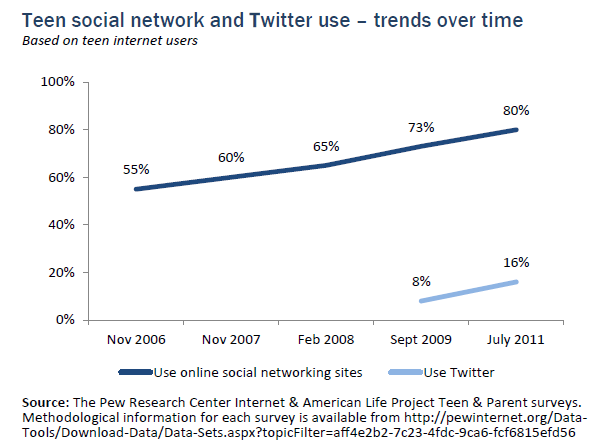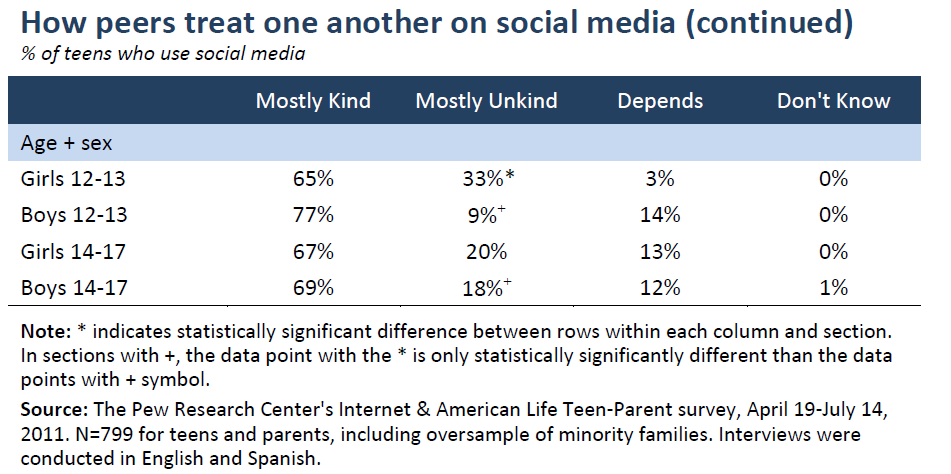 The Pew Internet and American Life Project released “Teens, kindness and cruelty on social network sites” last week. Educators, parents, and those who work with teens in any capacity should consider the report a must read (click here to access the full 86 page report). It reviews the multi-stage research that began in December 2010 with a meeting of experts to help refine the project, continued with focus groups of middle and high school students in January and February of 2011, and concluded with the development and deployment of a telephone survey to 799 teens ages 12-17 and a parent or guardian from April through July 2011. The summary of findings begins with these words:
The Pew Internet and American Life Project released “Teens, kindness and cruelty on social network sites” last week. Educators, parents, and those who work with teens in any capacity should consider the report a must read (click here to access the full 86 page report). It reviews the multi-stage research that began in December 2010 with a meeting of experts to help refine the project, continued with focus groups of middle and high school students in January and February of 2011, and concluded with the development and deployment of a telephone survey to 799 teens ages 12-17 and a parent or guardian from April through July 2011. The summary of findings begins with these words:
Social media use has become so pervasive in the lives of American teens that having a presence on a social network site is almost synonymous with being online. Fully 95% of all teens ages 12-17 are now online and 80% of those online teens are users of social media sites.
Consider the following statistics:
- 89% of social media-using teens have a Facebook account. The number rises to 99% among those teens with two or more social media accounts (p.19).
- 44% of online teens admit to lying about their age so they could access a website or sign up for an online account (p.8).
- 88% of social media-using teens have witnessed other people be mean or cruel on social network sites (p.3).
Most social-media teens perceive that most people their age are kind to one another on social networking sites. When the group is considered as a whole the responses to the question (Overall, in your experience, are people your age mostly kind or mostly unkind to one another on social network sites?):
- 69% say their experience is that peers are mostly kind to each other in social network spaces
- 20% say their peers are mostly unkind
- 11% chose “it depends”
The group most likely to find their peers to be unkind are girls ages 12-13 (p.25-28):
So What?
No longer is the question whether teens will be online, but rather how they will behave in virtual community. Social media is increasingly the communication channel of choice for adolescents. While laws designed to protect children have good intentions they are clearly ineffective in prohibiting younger users from creating accounts (44% have falsified their age to gain access). As teens spend more and more time in virtual community, it is essential that adults understand this new world and provide appropriate oversight and intervention. Everything that once only happened when young people were together in the same space now happens online, including bullying (cyberbullying).
I am thankful that my faith community is aware of these trends and seeks to be proactive in working with both parents and adolescents alike. What does your congregation do to educate both constituencies? How do your youth ministry leaders model healthy and helpful usage of social media?
